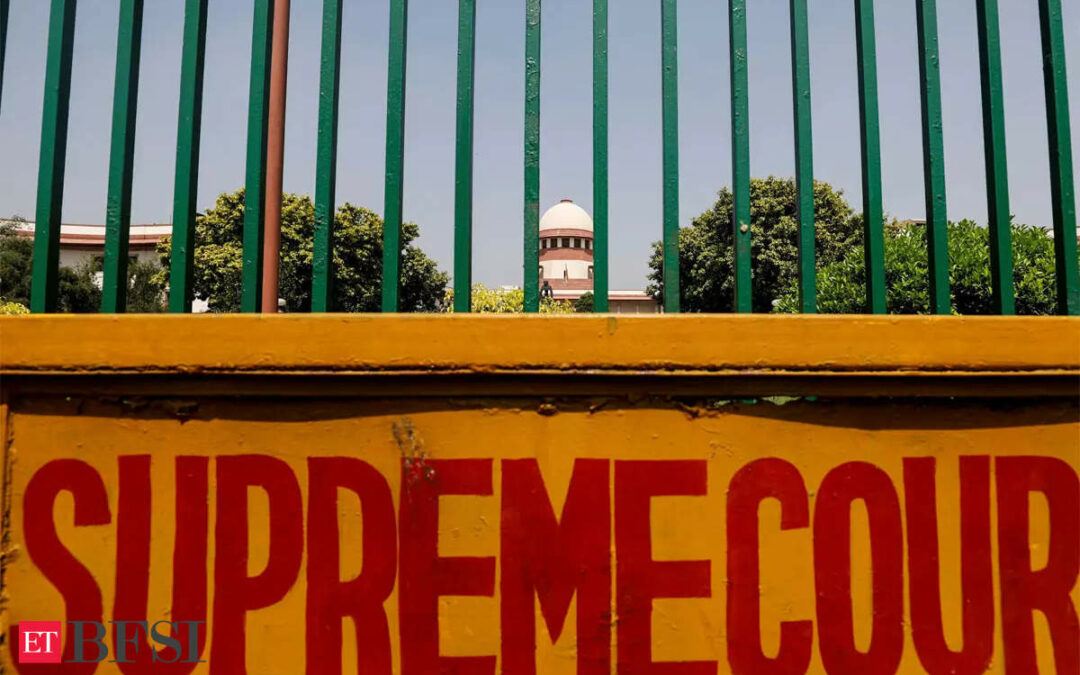The Supreme Court has held that the banks and Non-Banking Financial Companies (NBFCs) are bound to adopt a restructuring process for Micro, Small and Medium Enterprises (MSMEs) on their own without there being any application by the latter, as directed by the Central Government and the RBI in 2015 and 2016, respectively.
While setting aside the Bombay High Court judgment that ruled to the contrary, a bench comprising justices Bela M. Trivedi and R. Mahadevan, in a batch of cases led by M/s. Pro Knits versus The Board of Directors of Canara Bank, held that the ‘Instructions for the Framework for Revival and Rehabilitation of Micro, Small and Medium Enterprises’ issued by the government on May 29, 2015, and revised by the RBI on May 17, 2016 were mandatory and binding on all scheduled commercial banks licensed to operate in India.
“We are of the opinion that the findings recorded by the HC that the banks are not obliged to adopt the restructuring process on its own or that the Framework, as revised from time to time, could not be said to be mandatory in nature, are highly erroneous and cannot be countenanced. The Instructions/Directions issued by the Central Government under Section 9 of the MSMED Act and by the RBI have statutory force and are binding to all the banking companies,” the judges said.
“…the entire exercise as contained in the Framework is required to be carried out by the banking companies before the accounts of MSMEs turn into NPAs. However, pertinently the whole process of enforcement of security interest as contained in Chapter III of the SARFAESI Act, could be initiated only when the borrower makes any default in repayment of secured debt or any instalment thereof, and his account in respect of such debt is classified by the secured creditor as NPA, in view of Section 13(2) of the MSMED Act,” the apex court said.
It further said that the stage of identification of incipient stress in the loan account of MSMEs and categorization under the Special Mention Account category the banks or creditors, before the loan account of MSME turns into NPA is a very crucial stage, and therefore it would be incumbent on the part of the concerned MSME also to produce authenticated and verifiable documents/material for substantiating its claim of being MSME, before its account is classified as NPA.
“…if at the stage of classification of the loan account, the borrower does not bring to the notice of the concerned bank/creditor that it is a MSME and if such an Enterprise allows the entire process for enforcement of security interest under the SARFAESI Act to be over, or it having challenged such action of the concerned bank/creditor in the court of law/tribunal and having failed, such an Enterprise could not be permitted to misuse the process of law for thwarting the actions taken under the SARFAESI Act by raising the plea of being an MSME at a belated stage,” it said.
“Suffice it to say, when it is mandatory or obligatory on the part of the banks to follow the Instructions/Directions …, it would be equally incumbent on the part of the concerned MSMEs to be vigilant enough to follow the process laid down under the said Framework, and bring to the notice of the concerned banks, by producing authenticated and verifiable documents/material to show its eligibility to get the benefit of the said framework,” according to the judgment.
While various MSMEs had challenged the HC’s January order that dismissed their petitions arguing that banks, including Canara Bank, failed to follow the due procedure, Banks/ NBFCs argued that the SARFAESI Act overrides the provisions of the MSME Act and the Framework instructions were mere directory and not mandatory nor do they have any statutory force.










